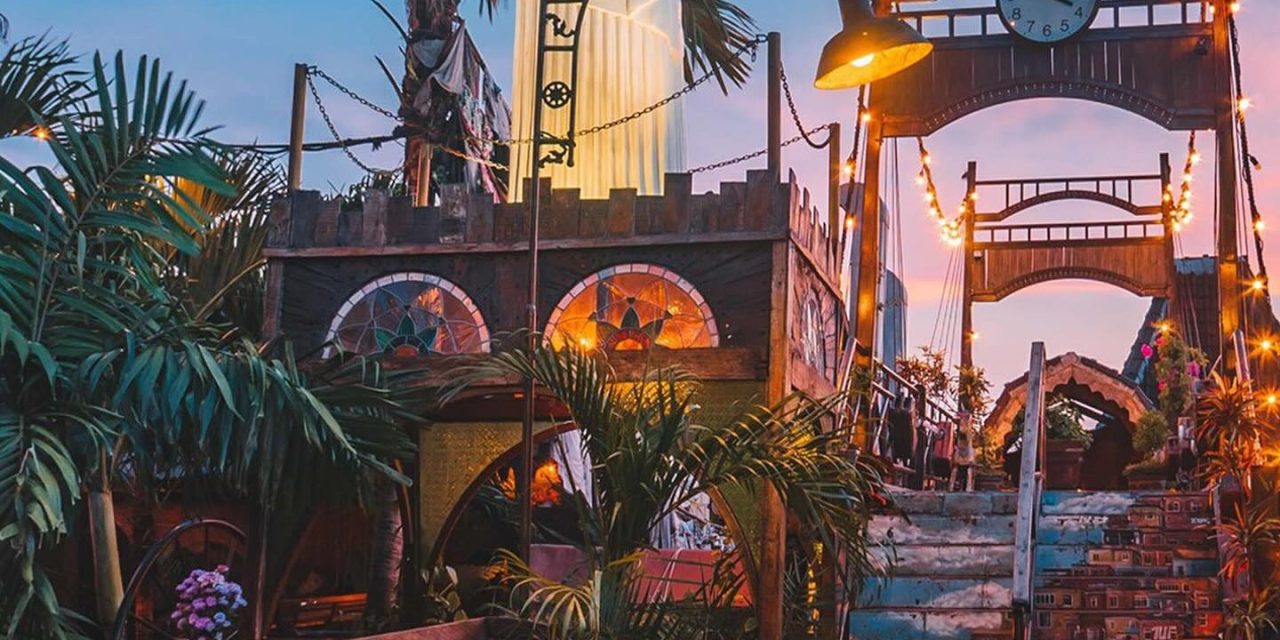When I first set foot on Bali, the warm sun kissed my skin and the delightful aroma of incense filled the air, instantly transporting me to a world that felt both foreign and familiar. I had heard whispers about Bali’s rich cultural heritage, but nothing could quite prepare me for the immersive experience of its traditional culture education and workshops. Bali is not just a tropical paradise; it’s a vibrant tapestry of art, rituals, and philosophies that have been carefully woven over centuries. In this article, I’ll take you on a journey through the traditional culture of Bali, share my personal anecdotes, and offer practical insights into various educational opportunities and workshops that you won’t want to miss.
Discovering Bali’s Rich Heritage
From the moment I arrived, I was captivated by Bali’s unique blend of spirituality and artistry. The island is home to various traditions, such as dance, music, carving, and cooking, each telling a tale of its own. The Balinese people live by the philosophy of Tri Hita Karana, which emphasizes the harmonious relationship between humans, nature, and the spiritual realms. I remember sitting on a wooden bench outside a traditional Balinese house, watching the locals prepare for a temple ceremony. A sweet woman invited me to help weave offerings called canang, made of delicate flowers and leaves. It was a simple yet profound moment that opened my eyes to the significance of these rituals.
Engaging in Traditional Dance Workshops
One of my favorite experiences in Bali was participating in a traditional dance workshop. The Balinese dance is a storytelling medium, rich with intricate movements and expressive gestures. I enrolled at the Ubud Sari Health Resort, where a professional dancer guided us through the mesmerizing Legong dance.
As I attempted to mimic the graceful gestures, laughter erupted around the room—not just at my clumsy moves, but at the joyful atmosphere where everyone, regardless of skill level, felt welcomed. The teacher shared insights into the stories behind the movements, emphasizing the connection to Balinese mythology. It was an excellent reminder that learning traditional art is not merely about technique, but about embodying the spirit of the culture.
Cooking Classes: A Flavorful Adventure
Food, as they say, is one of the love languages of any culture. I had always been intrigued by the vibrant flavors of Balinese cuisine, so I sought out a cooking class. The workshop at Bumbu Bali was a culinary delight.
We started shopping at the local market, a sensory overload of colors, sounds, and smells. Our instructor, an energetic local named Ketut, shared stories about each ingredient, making the experience feel like a treasure hunt. Back in the kitchen, we learned to prepare traditional dishes like Rendang and Lawar. As we chopped, stirred, and tasted, we exchanged stories, laughter, and a deep appreciation for the land that provides us with such sustenance.
Handicrafts and Art: Tapping into Creativity
Bali is renowned for its arts and crafts, and I couldn’t resist trying my hand at traditional painting and wood carving. I visited a local workshop in Ubud, where artisans shared their centuries-old techniques. My instructor, a wise old man with paint-stained hands, spoke of the spiritual connection to their work, grounding each stroke in their beliefs.
As I shaped my carving under his watchful eye, he often paused to explain the significance of the symbols I was etching—dragon motifs representing power, and lotus flowers signifying purity. The workshop felt more like a meditation, and I left with a newfound respect for the artisans who dedicate their lives to preserving this heritage.
Practical Tips for Engaging with Bali’s Culture
Here are a few practical tips if you’re considering diving into Bali’s traditional culture through education and workshops:
1. Research Ahead: Bali offers numerous workshops across various disciplines. Sites like TripAdvisor or local blogs can guide you to reputable classes.
2. Choose Passion Projects: Identify what interests you most—whether it’s dance, cooking, or crafts—and seek specific workshops that resonate with your passions.
3. Engage with Locals: Don’t hesitate to strike up conversations. Balinese people are friendly and often delighted to share stories about their culture.
4. Be Respectful: When participating in cultural activities, remember to dress appropriately and adhere to local customs to show respect for their traditions.
5. Document Your Journey: Bring a journal or a camera, and capture your thoughts and experiences. This reflection can deepen your appreciation and understanding.
Conclusion: A Journey Worth Taking
Exploring Bali’s traditional culture through education and workshops is not just an activity; it’s an immersion into a way of life that has thrived over centuries. Whether you’re swirling in a dance class, savoring the spices of a homemade feast, or crafting a piece of art, every moment is an invitation to connect more deeply with this enchanting island.Bali may be known for its stunning landscapes and sandy beaches, but it’s the rich cultural experiences that truly make your visit unforgettable. So, pack your bags, open your heart, and get ready to learn, create, and grow in the beautiful embrace of Balinese tradition. This journey will undoubtedly leave an indelible mark on your soul.






